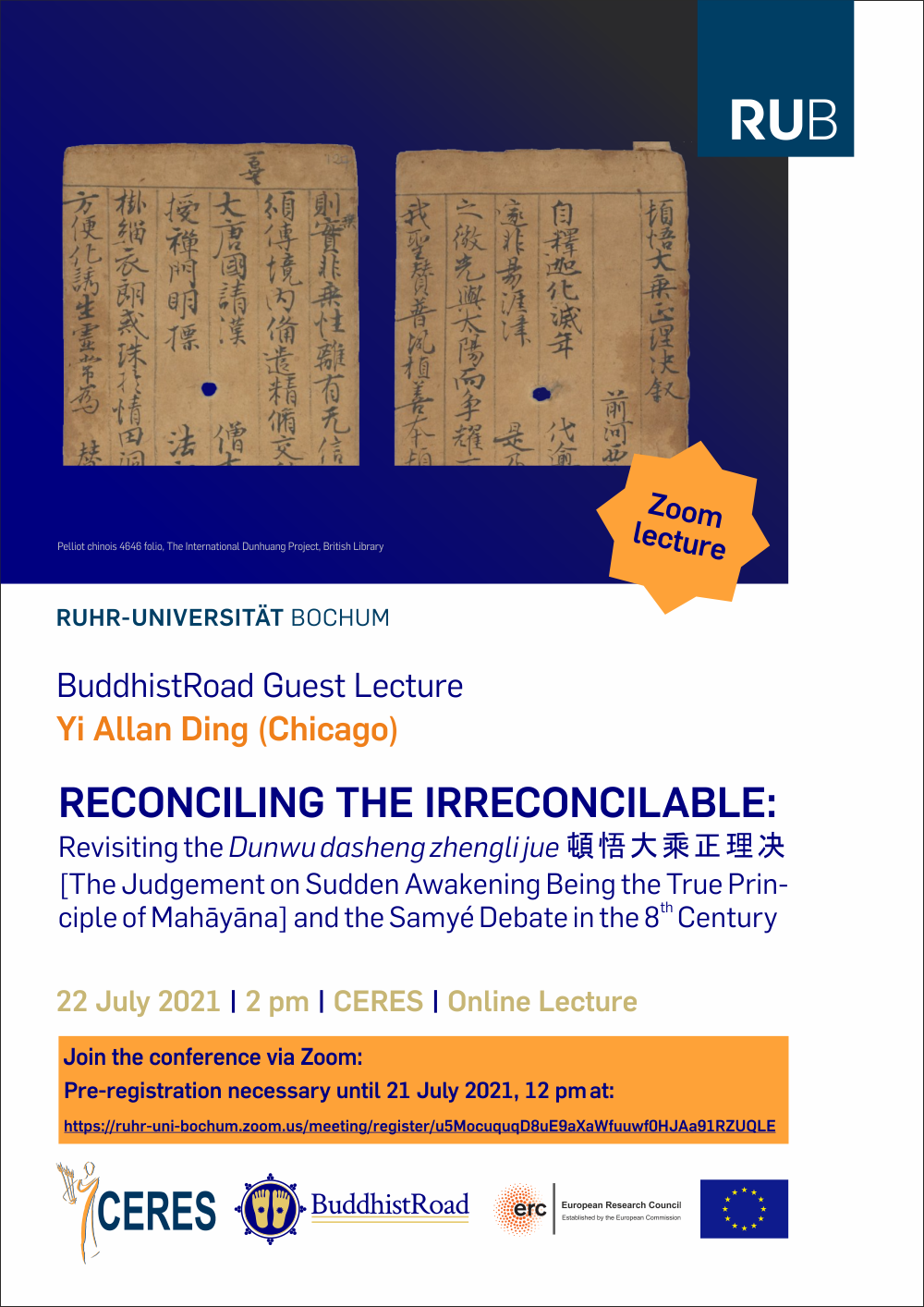Reconciling the Irreconcilable?

22 July 2021 - Yi Allan Ding (Chicago, IL)
Reconciling the Irreconcilable? Revisiting the Dunwu dasheng zhengli jue 頓悟大乘正理决 [The Judgement on Sudden Awakening Being the True Principle of Mahāyāna] and the Samyé Debate in the 8th Century
public online lecture at the BuddhistRoad project, CERES, Ruhr-Universität Bochum
Since Paul Demiéville published his study on the Dunwu dasheng zhengli jue 頓悟大乘正理决 [The Judgement on Sudden Awakening Being the True Principle of Mahāyāna] in Le concile de Lhasa in 1952, many scholars have contributed to the discussion about related issues by closely studying relevant Tibetan materials, which include PT 823/1, PT 827/2, PT 116, bSam gtan mig sgron [The Eye-Lamp for Meditation], Cig car ’jug pa rnam par mi rtog pa’i bsgom don [The Meaning of the Sudden Entry into Non-Conceptual Meditation], dBa’ bzhed [The Testament of Wa], etc. This presentation demonstrates that the Tibetan materials have enabled us to reevaluate the composite nature of the Judgement and to extrapolate a ‘debate’ process underneath the seemingly disorderly questions and answers. For instance, a large portion of the Judgement should be understood as Chinese translations of original Tibetan queries; owing to the existence of translation procedures, miscommunication between Kamalaśīla (ca. 740–795) and Moheyan (fl. 786–794, 摩訶衍) did at times happen. A more nuanced understanding of the Judgement also makes it possible to reconcile the narrative in the Judgement with some of the elements in the now well-studied dBa’ bzhed.


